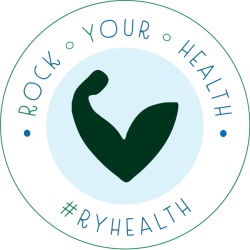Nature, Outdoors, Sustainability, Well-being, the Right of Public Access
Freedom and adventure in nature
"Out and about, no room for doubt"
Inspirational video for outdoor activities
For further information about Allemansrätten (the Right of Public Access), please visit:
For further information about Allemansrätten (the Right of Public Access), please visit:

Freedom to Explore: The Benefits of Play, Risk, and the Right of Public Access for Children and Youth
"When children spend time outdoors and learn new things, they gain numerous health and developmental benefits that stay with them for life."
(The Swedish Outdoor Association)
Spending time in nature has significant positive effects on the physical and mental health of children and youth. Outdoor activities promote movement, strengthen motor skills, and offer a freedom difficult to achieve indoors. Below are some key aspects of nature’s role in children’s development.
Physical Development and Risk Assessment
When children play outdoors and move on uneven surfaces, like climbing rocks or balancing on logs, they develop coordination and strength, which are essential for physical development (Skerrett, 2018). Natural environments also provide opportunities to learn risk management. Researcher Ellen Beate Hansen Sandseter has shown that play involving a certain level of risk, where children can challenge themselves and experience a degree of danger, strengthens their ability to make independent decisions and builds self-confidence. The willingness to climb high or jump over water allows children to balance feelings of excitement and fear, which is important for both physical and emotional maturity (Gill, 2007; Sandseter, 2018).
Mental Relaxation and Peace of Mind
Natural environments also have a calming effect on children’s and youth’s mental health. Spending time in nature, particularly in tranquil settings, can reduce stress and foster a sense of peace. Studies show that time in nature reduces stress and enhances well-being, a critical benefit in today’s digital world, where many children spend much of their time indoors (Kuo & Taylor, 2004). The peace of nature can also offer moments for reflection, which supports children’s emotional and cognitive development (Pretty et al., 2005).
The Right of Public Access – A Unique Opportunity
In Sweden, the Right of Public Access allows everyone, including children, to move freely in nature, provided they show respect and care for the environment. This right permits activities like hiking, berry-picking, and swimming, while also teaching children and youth about environmental responsibility and respect for nature. This unique right provides children with a foundation for a sustainable relationship with nature and a deeper understanding of environmental responsibility (Naturvårdsverket, 2021).
Conclusion
In summary, nature offers children and youth a range of benefits: physical activity, risk management, mental relaxation, and an understanding of environmental responsibility. The Right of Public Access is a key factor that enables these experiences, contributing to a holistic development in which children can strengthen both body and mind.
Authors: Hanna Karlsson RV, Rebekka Mannelqvist, RV
Sources:
- Gill, T. (2007). No Fear: Growing Up in a Risk-Averse Society.
- Kuo, F. E., & Taylor, A. F. (2004). "A Potential Natural Treatment for Attention-Deficit/Hyperactivity Disorder: Evidence from a National Study".
- Naturvårdsverket. (2021). The Right of Public Access – A Unique Opportunity.
- Pretty, J., et al. (2005). "The mental and physical health outcomes of green exercise".
- Sandseter, E. B. H. (2018). Risky Play and Children’s Safety: Balancing Priorities for Optimal Child Development.
